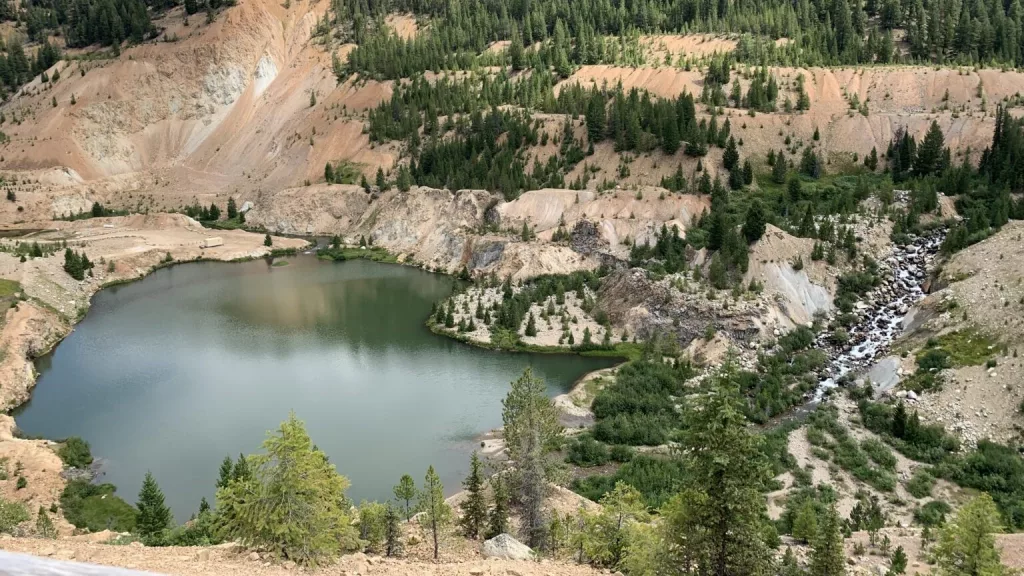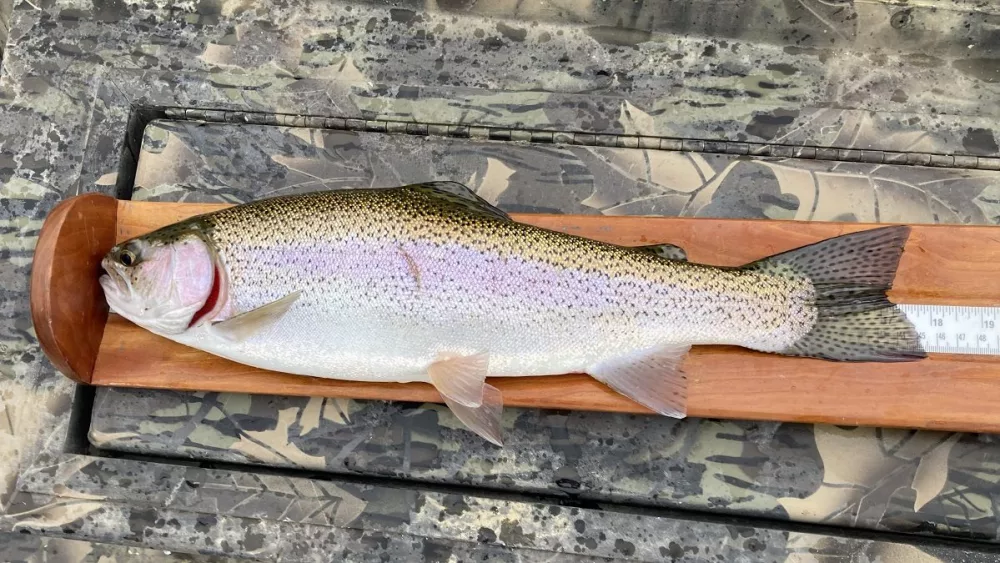BOISE, ID – Several conservation groups filed a lawsuit against the U.S. Forest Service in U.S. District Court on Tuesday challenging the recent approval of a gold mine located adjacent to the Frank Church-River of No Return Wilderness in Central Idaho.
In early January, the U.S. Forest Service issued a final record of decision approving the Stibnite Gold Project.
A company called Perpetua Resources – formerly known as Midas Gold – has plans to resume mining for gold, silver and a chemical element called antimony at the Stibnite Gold Mine, which is located in Valley County near the tiny town of Yellow Pine.
Mining at the site dates to the late 1800s, and metal mined at Stibnite contributed to the World War II effort.
But after all mining ceased by the 1990s, the mine’s former owners abandoned the open pit mine, polluting the East Fork of the South Fork of the Salmon River with arsenic and sediment. Conservationists said the East Fork of the South Fork of the Salmon River is an important habitat for endangered salmon, and the nearby Frank Church Wilderness is home to many plant and animal species, including wolverines, bears, beavers, wolves and endangered salmon.
Perpetua Resources has pledged to clean up some of the legacy pollution as it resumes mining for gold, silver and antimony.
Conservation groups say mining project could harm fish, wildlife habitat
Conservation groups argue that the new mining plans call for disturbing an even greater area of land than the previous owners of Stibnite, which they argue could do immeasurable harm to public lands and important fish and wildlife habitat.
This week’s lawsuit alleges that when the U.S. Forest Service issued its approval, it failed to consider the project’s negative environmental impacts or properly consider alternatives.
“Permitting this level of destruction not only threatens a culturally important area and cherished public lands, it fails to comply with the law,” Bryan Hurlbutt, a staff attorney at Advocates for the West, said in a written statement Tuesday. “By prioritizing mining and giving Perpetua Resources everything they asked for, the Forest Service violated its duties to protect fish and wildlife, and ensure clean water and air.”
Perpetua Resources officials say decision process was rooted in science, rule of law
Officials with Perpetua Resources disagree with the lawsuit, saying they followed all the legal processes throughout the permitting, application and approval process.
“The Stibnite Gold Project has undergone a rigorous, science-based environmental review over the course of eight years, and we are confident in the U.S. Forest Service’s ability to defend its Record of Decision,” Perpetua Resources wrote in a written statement shared with the Idaho Capital Sun on Wednesday. “While legal challenges to mining projects are commonplace, it is important to ensure the process remains rooted in science and the rule of law.”
Officials with Perpetua say that the mine represents a rare domestic source of the element antimony, which they said can be refined and used in ammunition and batteries for electric vehicles.
“The Stibnite Gold Project is critical to our national security and is poised to provide hundreds of family-wage jobs, restore habitat, reconnect fish to their native spawning grounds, clean up legacy contamination, improve water quality and establish the only domestically mined source of antimony,” Perpetua Resources said. “The project offers the abandoned mine site the only viable path to near-term cleanup. These benefits are too important to be unnecessarily delayed, especially after eight years of permitting and project improvements. We are hopeful this challenge will be swiftly resolved, making the Stibnite Gold Project a reality.”
However, conservation groups say the proximity to wilderness and critical habitat is no place to resume mining and expand Stibnite into one of the largest gold mines in the United States.
“The impacts to the South Fork Salmon River watershed, threatened fish and wildlife, public access, clean air, clean water and world class recreation from the Stibnite Gold Project are simply unacceptable,” John Robison, public lands and wildlife director for the Idaho Conservation League, said in a written statement. “Given the recent layoffs at the Payette National Forest, we are concerned about the Forest Service’s ability to manage this high-risk project in addition to all their other responsibilities.”
This story first appeared on Idaho Capital Sun.





